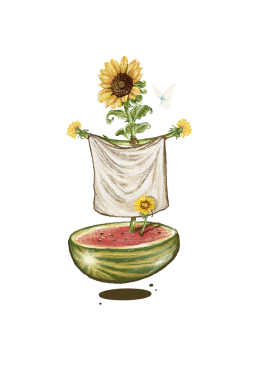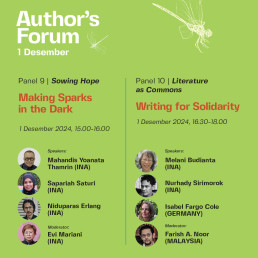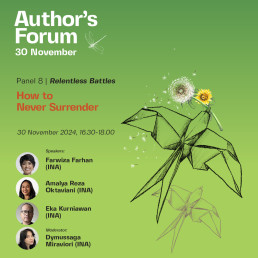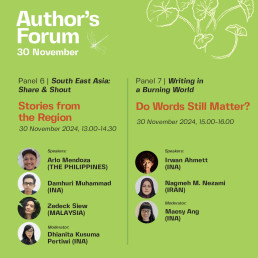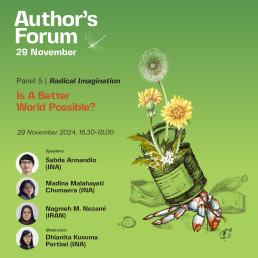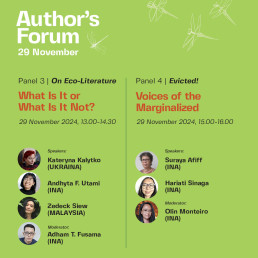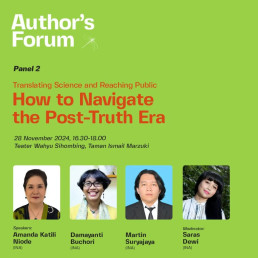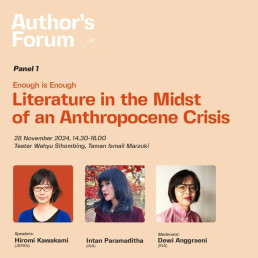
Author’s Forum
The 2024 JILF x Jaktent on “F/ACTA, Words and Actions Aligned on Eco-Literature” and “Shared Culture, Shared Future” presents several lineups of panels that delve into the intersections of literature, ecology, and social justice.
On 28 November, the first Author’s Forum starts with “Enough is Enough: Literature in the Midst of an Anthropocene Crisis”, addressing the urgency of our environmental and social crises. This session explores the role of literature in sparking action against climate change, territorial struggles, and regional conflicts. Later, “Translating Science and Reaching Public: How to Navigate the Post-Truth Era” highlights the challenge of bridging the gap between scientists, writers, and the wider public, advocating for more inclusive and accessible environmental narratives.
On 29 November, the forum dives into eco-literature with “On Eco-Literature: What Is It or What Is It Not?”, questioning the evolving definition of the genre and its environmental insights. The series continues with “Evicted!: Voices of the Marginalized” which amplifies the stories of indigenous and displaced communities grappling with ecological exploitation, while “Radical Imagination: Is A Better World Possible?” calls for bold, transformative ideas from writers to envision a just and sustainable future.
On 30 November, the forum highlights regional storytelling with “South East Asia: Share & Shout, Stories from the Region” providing a platform for writers to discuss challenges and opportunities in amplifying their voices globally. “Writing in a Burning World: Do Words Still Matter?” addresses the pressing role of literature in confronting the climate crisis. “Relentless Battles: How to Never Surrender” delves into the intersectionality of class, gender, race, and environmental struggles, exploring the resilience required to navigate these complexities.
The final day, 1 December, offers a more optimistic lens with “Sowing Hope: Making Sparks in the Dark,” where writers and journalists discuss the art of nurturing hope amid despair. The festival concludes with “Literature as Commons: Writing for Solidarity,” celebrating literature’s communal roots and its potential to foster solidarity, belonging, and resistance against capitalist structures.



